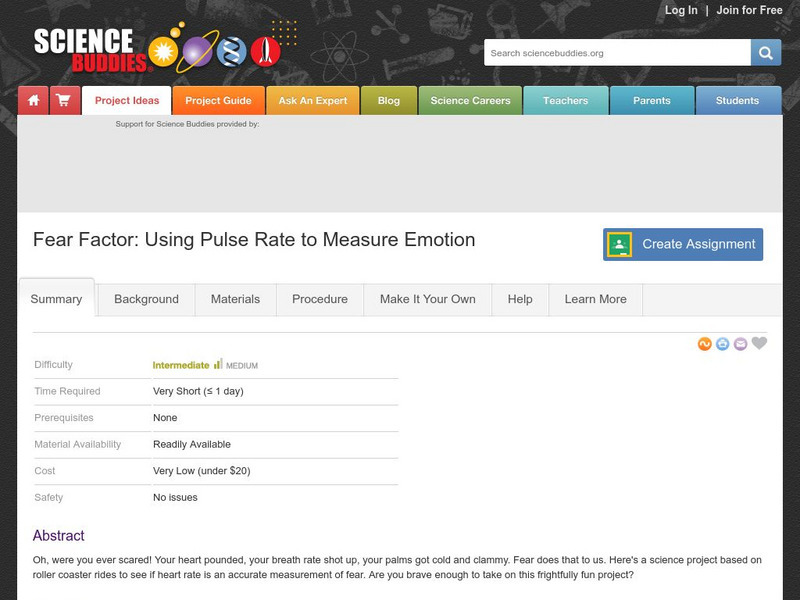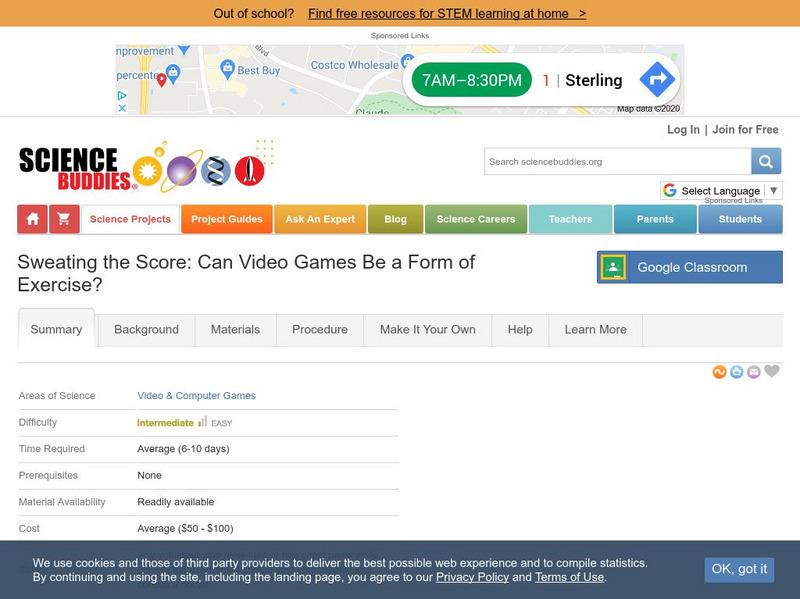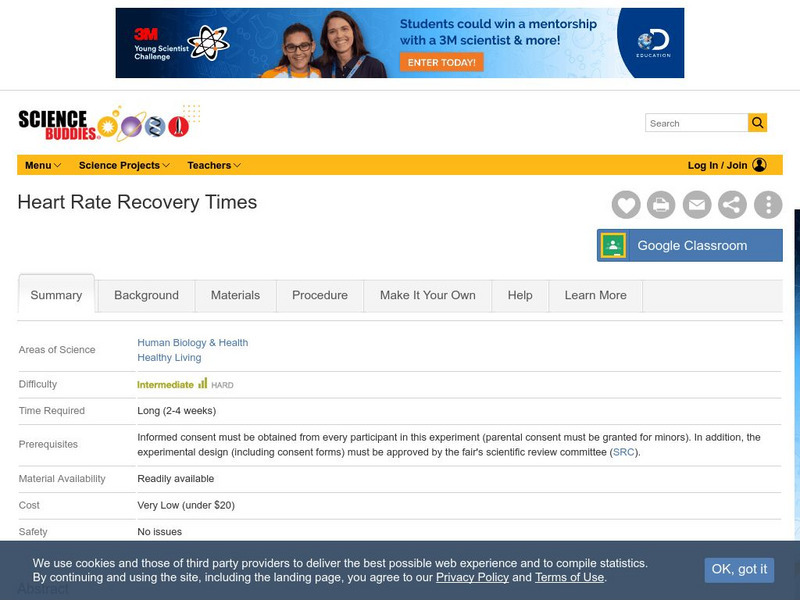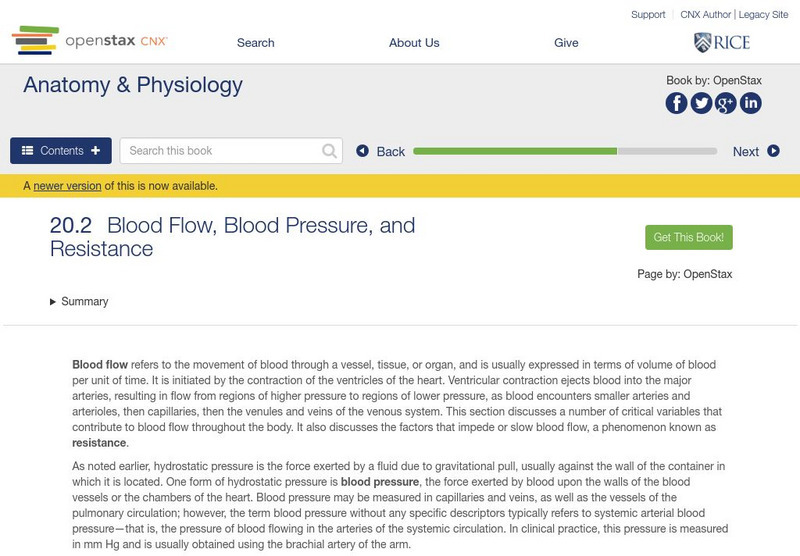Curated OER
Dribbling Speedway
Students control a ball while dribbling with hands and feet through obstacles. This is a heart healthy activity that accompanies the completion of several tasks as they reach their assigned station.
Curated OER
Keeps on Pumping
Students measure and calculate heart rates per minute and for other units of time. They determine the amount of blood pumped by their heart during various intervals of time.
National Cancer Institute at the National Institutes of Health
Seer Training Modules: Introduction to the Cardiovascular System
Self-guided learning activity where students learn about the structure and function of the human cardiovascular system. There is a short quiz at the end of the lesson to check for understanding.
Science Buddies
Science Buddies: Heart Health: How Does Heart Rate Change With Exercise?
Your heart starts beating before you are born and keeps right on going through your whole life. Over an average lifetime, the human heart beats more than 2.5 billion times. Keeping your heart healthy means eating right, not smoking, and...
Science Buddies
Science Buddies: Fear Factor: Using Pulse Rate to Measure Emotion
Do you remember a situation when you heart pounded, your breath rate shot up, and your palms got cold and clammy? Fear does that to us. Here's a science project based on roller coaster rides to see if heart rate is an accurate...
Science Buddies
Science Buddies: Sweating the Score: Can Video Games Be a Form of Exercise?
The majority of video games are sedentary, meaning done in one position, but there is an increasing trend toward video games where the players are physically active. Whether or not these type of video games can be considered exercise is...
Science Buddies
Science Buddies: Heart Rate Recovery Times
After exercise, your heart rate increases, this is normal for everyone. However this experiment asks whether the recovery time for a heart's beating rate is faster for people who get regular exercise versus those that do not.
Science Buddies
Science Buddies: A Day in the Life of Your Heart
Heart rates can be determined by the amount of physical activity your body is engaging in. The more physically active you are, the faster your heart beats. You can measure the rate your heart is beating by taking your pulse. This science...
BioEd Online
Bio Ed Online: The Science of the Heart and Circulation
In this unit teachers will evaluate student's current understanding of the heart and circulatory system through a pre-assessment. They will develop group concept maps and then repeat the assessment. Teachers can compare their prior...
OpenStax
Open Stax: Anatomy & Physiology: Blood Flow, Blood Pressure, and Resistance
Learn about the components and measurement of arterial blood pressure, as well as the variables affecting blood flow and blood pressure in this learning exercise.
BBC
Bbc Schools: Ks2 Bitesize: Science: Living Things: Circulation
Check Steve's cardiovascular health before he starts filming his dangerous wildlife special. Following the activity, read more about the heart, and then take a quick quiz to check for understanding.
TeachEngineering
Teach Engineering: The Beat Goes On
In this activity, students learn about their heart rate and different ways it can be measured. Students construct a simple measurement device using clay and a toothpick, and then use this device to measure their heart rate under...
Science Museum of Minnesota
Lesson Plan: Keeps on Pumpin'
In this interactive site, students will measure and calculate heart rates and determine the amount of blood pumped by their heart.
PBS
Pbs Teachers: Drinking Straw Pulse Measurer
Measure the human pulse by counting the movements of a drinking straw attached with clay to the pulse point on the neck. Predict activities that affect pulse rate, and compare your pulse with another person's.
Other
Guitar Land: Music 10: Note Values and Rhythms
An overview of the value of notes. Includes many examples of rhythms and tempos.
Treehut
Suzy's World: Blood
Use this site to find out why your body needs blood with this quick fact sheet. You can also try an experiment with your pulse.
Treehut
Suzy's World: Heart
Find out why your heart beats and perform an experiment to see your pulse moving.
BBC
Bbc: Ks2 Bitesize: Science: Circulation
Background information review of key concepts about the circulatory system, including the heart and pulse. Tis site provides diagrams, activities, and quiz questions.

















